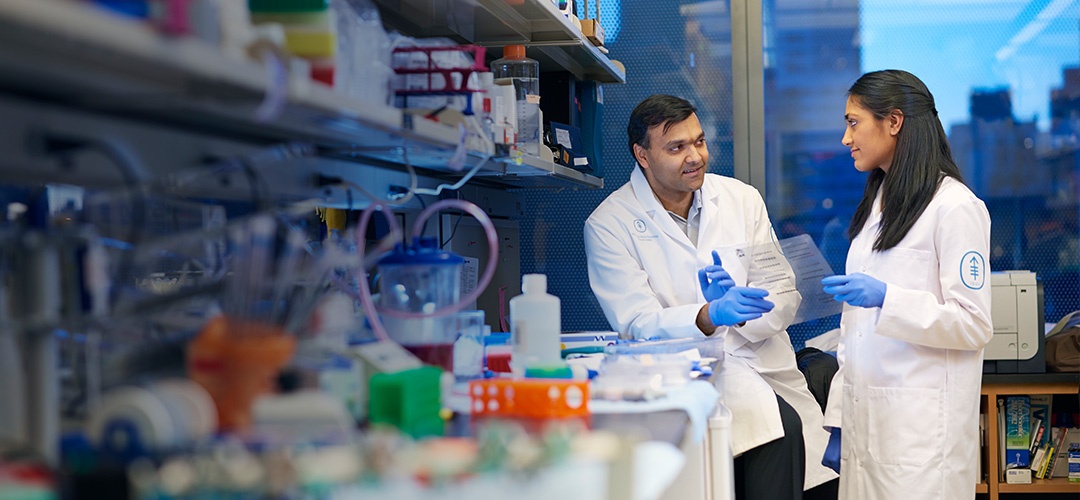Breakthrough Breast Cancer Discovery
Q & A with Sarat Chandarlapaty, MSK Breast Cancer Oncologist
When did you decide to pursue a career in cancer research?
When I was getting my PhD in biochemistry, we were working on understanding a pathway in Baker’s yeast. And at the very same time, people were discovering mutations in the same pathway in cancer. And I thought it was so amazing that our work on yeast was actually important to how cancers develop. That was when I realized I wanted to become a physician-scientist — because I could help people through science.
What got you interested in studying growth signaling pathways?
While I was in medical school I became interested in working with Dr. Charles Sawyers, Chair of the Human Oncology and Pathogenesis Program (HOPP) at MSK. He and others were working at the forefront of what is now called precision medicine — applying a drug to a growth signaling pathway. So that is why I did my residency and fellowship at MSK.
Tell us how you found ESR1 mutations, and why that’s important?
I began to work with Michael Berger, Associate Director of the Kravis Center for Molecular Oncology (CMO), in 2012, when his team was developing MSK-Impact. Today, MSK-Impact is at the core of our precision medicine program — we test for mutations in 468 genes that potentially cause cancer and match the mutations we find with medications that can help. In many cases there is still no targeted therapy available, and that’s why this research is still so important.
Back then, we were interested in sequencing breast cancer samples from patients who had developed resistance to hormone therapies. These women had run out of existing treatment options, and we were curious to see what it was in these cancers that caused the medicine to stop working. We didn’t go in expecting they were going to have ESR1 mutations, but it turns out that many women did, which was a transformative finding.
This was a new approach to breast cancer research because we looked at genetic sequencing as a driver of cancer – and beyond that, the spread of this cancer. Back then, no one thought of testing the cancers that had spread — people only tested the original breast tumor. What we found was that the cancer changed genetically over time with exposure to hormone therapy. Cancer evolved to become resistant to the treatment.

How did you get funding to pursue this novel research approach?
At this stage in my research, I had a good idea founded in logic, but I didn’t have the data yet. This is when the generosity of foundations and individual donors was absolutely critical. I never could have said to government funding sources, “I have these samples, I want to sequence them” without a clear expectation of what was going to happen.
What is being developed now because of your research?
We are running many clinical trials to test a huge wave of new drugs that are being developed. Now that we have strong data, pharmaceutical companies have put significant money into research and development. I am confident that new drugs for advanced breast cancer will enter the market based on our research, helping women worldwide.
Why is philanthropy more important to cancer research today than ever before?
Today there’s more capability in science. Especially in cancer research, we are living in a defining scientific age. Meritorious research is often not funded by the government, making philanthropy even more important.
Charitable donations fuel the early-stage research and innovations that allow us to leap forward—and provide the global cancer care community with the next wave in treatment options.
Make an impact on cancer research at MSK. DONATE NOW